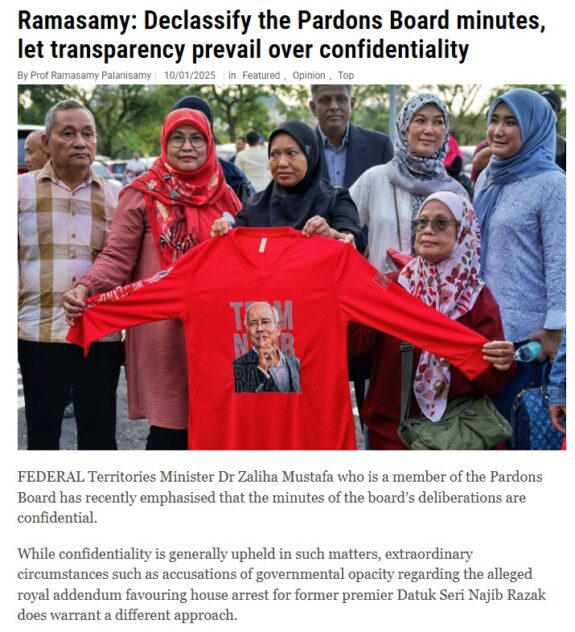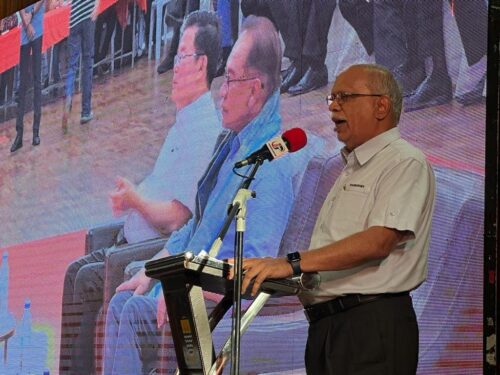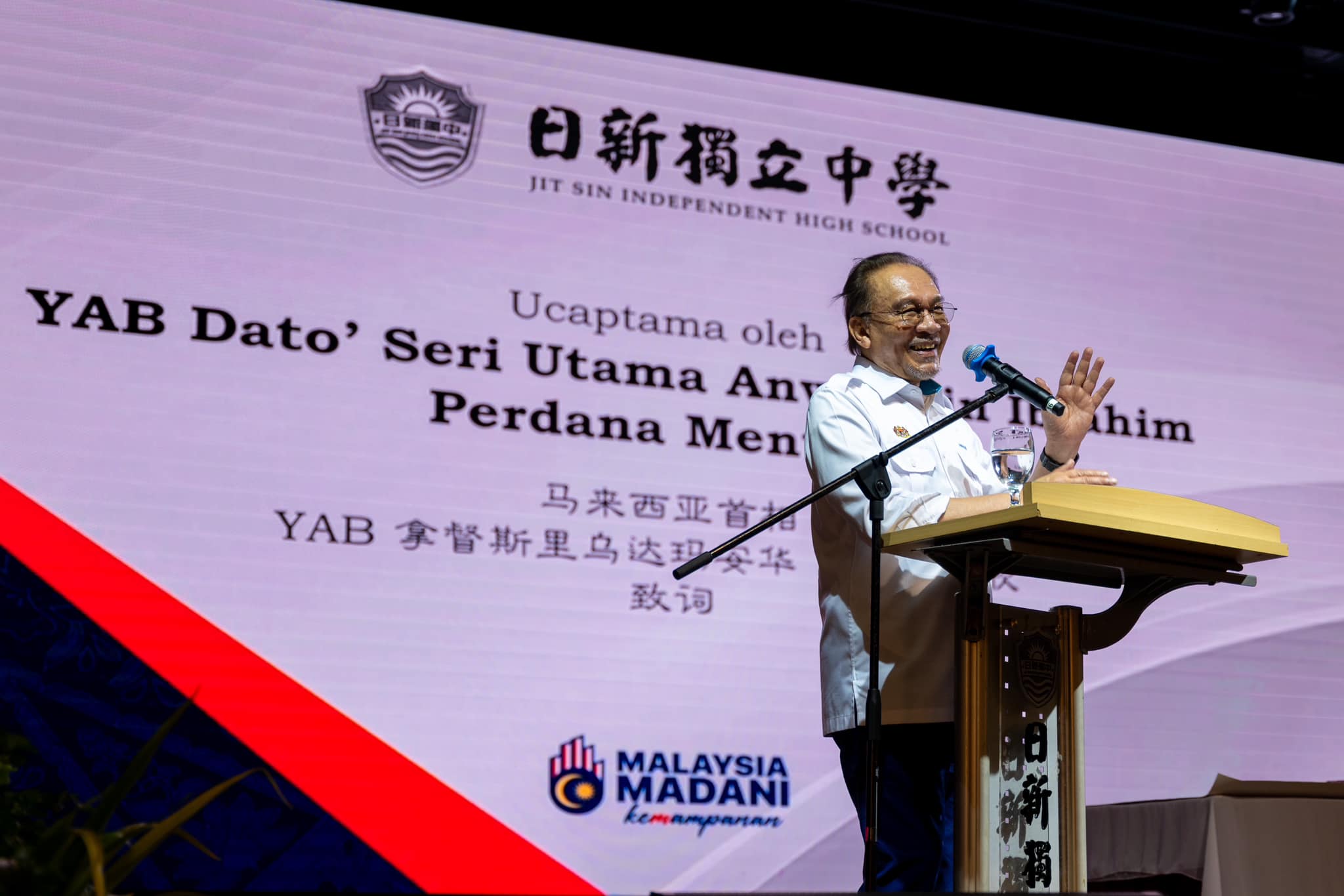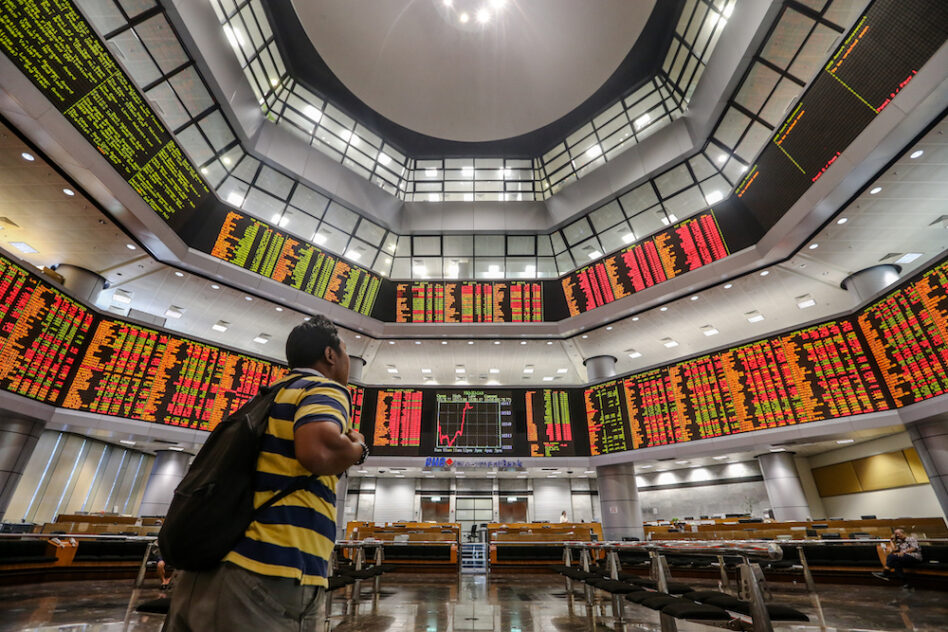PRIME Minister Datuk Seri Anwar Ibrahim has finally confirmed the existence of the royal addendum regarding Datuk Seri Najib Razak’s house arrest.
This document was purportedly sent to the former Attorney-General (AG) by the former Yang di-Pertuan Agong and later forwarded to Istana Negara for the current Agong’s consideration.
Anwar claims the royal addendum bypassed him entirely, leaving its resolution to the discretion of the Pardons Board and the Agong.
Why has Anwar chosen to disclose this now after months of speculation? Is this a response to mounting political pressure that has rendered further deflection untenable?
Anwar’s reluctance to address the matter earlier underscores a broader pattern in his leadership: sidestepping contentious issues and tailoring narratives to different audiences.
This avoidance is particularly glaring given Anwar’s own history. His political resurgence in 2018 was facilitated by a royal pardon that did not exonerate him but enabled his release.

Najib’s partial pardon
By failing to provide clarity on the royal addendum earlier, he appears to have forfeited an opportunity to act with the same transparency and accountability expected of him.
The royal addendum coincided with Najib’s partial pardon which halved his sentence and fines but did not clear his conviction.
Anwar’s admission lends credence to arguments in Najib’s court case as the existence of the addendum could strengthen the case for house arrest.
Critics argue Anwar should have either pursued a full pardon for Najib or decisively distanced himself from the controversy.
His hesitance has been interpreted as political opportunism, shaped by his alliance with DAP which firmly opposes clemency for Najib.
Adding to the controversy, Anwar’s Cabinet ministers have fumbled their responses to questions about the royal addendum, turning the issue into a source of public ridicule.
This mishandling casts doubt on the coalition government’s ability to navigate more significant challenges facing the nation.
Apology abounds
Once hailed as a beacon of reform, the Pakatan Harapan (PH)-led coalition appears hamstrung by half-truths and a lack of accountability.
Anwar’s failure to address the royal addendum earlier has eroded public confidence in his government.
If he had acted decisively – whether by clarifying the matter or pushing for a full pardon – he might have emerged as a leader willing to confront uncomfortable truths.

Anwar’s admission strengthens the argument that the royal addendum holds legal weight, potentially influencing the High Court’s decision on Najib’s house arrest.
Moreover, the prosecution’s decision not to oppose Najib’s appeal in the Court of Appeal suggests implicit acknowledgment of the addendum’s significance.
Rather than portraying his non-interreference in judiciary maters, Anwar must apologise to Malaysians for his lack of transparency on the royal addendum.
This episode reflects poorly on his leadership and raises concerns about the coalition’s ability to manage other pressing political, social and economic issues.
A commitment to honesty, accountability and responsibility is essential if the government hopes to rebuild public trust. – Jan 12, 2025
Former DAP stalwart and Penang chief minister II Prof Ramasamy Palanisamy is chairman of the United Rights of Malaysian Party (Urimai) interim council.
The views expressed are solely of the author and do not necessarily reflect those of Focus Malaysia.
Main image credit: Anwar Ibrahim/Facebook









